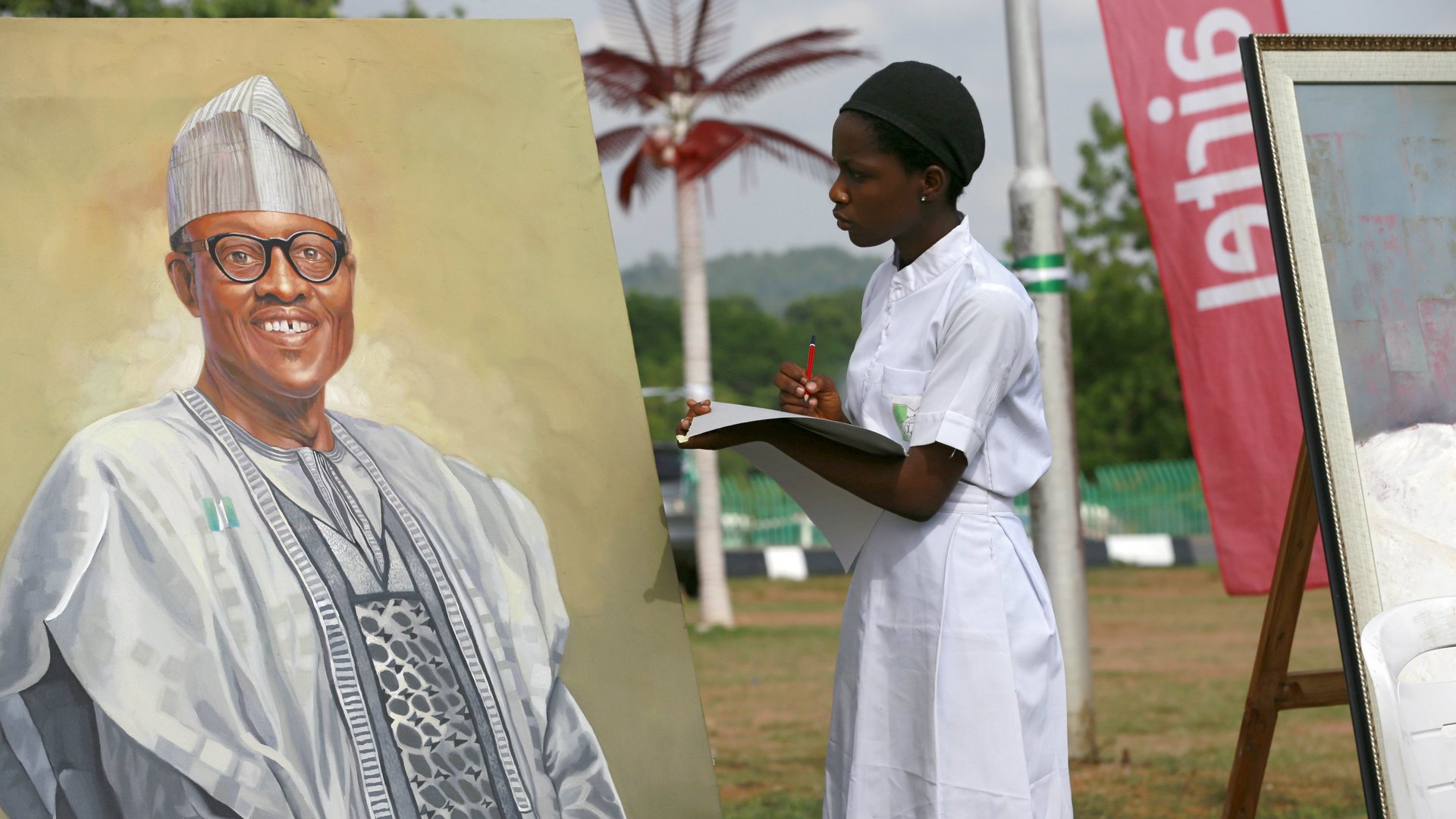Nigeria’s Buhari has been hurt by communication missteps in his first year
Exactly a year ago, Nigeria’s president, Muhammadu Buhari, won the general elections and since taking over, as promised, has led a fight against corruption, with a series of high profile arrests and reportedly already recovering millions of stolen dollars.


Exactly a year ago, Nigeria’s president, Muhammadu Buhari, won the general elections and since taking over, as promised, has led a fight against corruption, with a series of high profile arrests and reportedly already recovering millions of stolen dollars.
But it hasn’t been straightforward for Buhari. The Nigerian economy has been set back due to low oil prices and there’s been the daily challenges of fuel scarcity and crippling power shortages across the country. However, of the many complex challenges Buhari faces, one of the least discussed features of his leadership has been a slightly haphazard communications strategy which has at times caused more confusion than help matters during his first year.
It’s worth remembering that while Buhari has a history from his military leadership days of stifling the press he has very clearly and repeatedly disavowed the idea of curtailing press freedoms as a democratically elected president. Yet he hasn’t done enough to earn the trust of the local press. Since taking the office the president has only held one formal media chat with Nigerian journalists. To be sure, the president has sat for several open and frank press interviews since coming to office—but they have all been granted to foreign media.
But here’s the thing, some of those foreign press interviews haven’t all gone to plan. And this is where the president’s personal communications skills, and the strategy of his advisers, come into question.
In a BBC interview in December, Buhari said Nigeria had “technically won the war” against Boko Haram under his administration. His comments were followed over the next few days and weeks with several significant attacks by the terrorist sect. While the president was likely trying to make a point about reducing the territorial threat of Boko Haram, describing it as a technical victory was ill-advised and seemed shallow and almost callous for a leader with his own combat leadership experience.
In January, speaking in Nairobi, Buhari defended his currency valuation policy, saying he will not “kill the Naira”. It was intended to serve as a rebuttal to questions on why Nigeria’s currency had not been devalued as many economists have proposed. But Buhari’s seemingly off-the-cuff comments came across as driven by emotion rather economic reasoning, thus further unnerving investors who are already starting to turn away from Nigeria. It also didn’t help the naira’s cause versus the dollar.
When he has not been discussing his own progress, he has made other broader gaffes as he did with the UK’s Telegraph in February. Buhari commented on Nigeria’s troubled image outside the country, blaming it on citizens who “made it difficult for Europeans and Americans to accept them” because of the high number of Nigerians in foreign prisons. Predictably, the sentiment incensed Nigerians at home and in the diaspora and also provided propaganda fodder for an increasingly vocal opposition party which shorthanded the president’s comments as describing Nigerians abroad as “criminals”. The Presidency was forced to issue a statement attempting to clarify his comments. But the damage was already done.
Earlier this month, Buhari sat with Al Jazeera in Qatar, and this time chose that outlet and venue to defend his stance on Nigeria’s membership of the Islamic Countries Coalition against Terrorism. Again, it was the poor optics of being in Qatar discussing a sensitive position which was undoubtedly more needed at home where propaganda-driven rhetoric on the president’s plans to ‘Islamize’ the country is rife and potentially dangerous given Nigeria’s fragile religious divisions.
Buhari, 73, has never pretended to be a smooth-talking politico or a great orator. The former army general’s gruff bluntness and frank talk has been described as refreshingly honest. But there’s little doubt his office could benefit from better communications with a frustrated and disgruntled Nigerian public. It would help avoid exacerbating sensitive situations during a difficult time in the country’s history. Buhari’s team will argue the first year has been spent planning strategy but Nigerians can’t know for sure about that if they feel the president hasn’t been speaking to them.